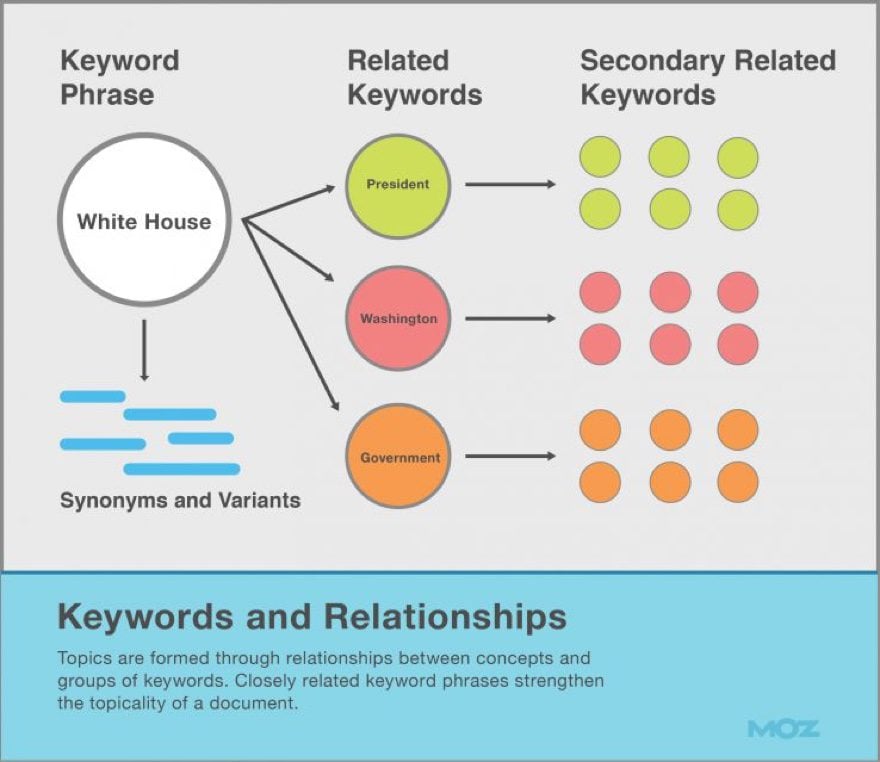Mastering Keyword Analysis And Research For Effective SEO
Introduction to Keyword Analysis and Research
In the ever-evolving world of digital marketing, understanding how people search for information is crucial to ensuring your website ranks higher in search results. At the heart of an effective SEO strategy lies keyword analysis and research. These processes are fundamental in identifying and prioritizing the search terms that users type into search engines. By mastering keyword analysis and research, you can enhance your content's visibility, attract more organic traffic, and ultimately achieve better business outcomes.What is Keyword Analysis?
Keyword analysis is the process of evaluating the queries people type into search engines to identify and prioritize the search terms you want your website to rank for. It involves understanding the search terms that are relevant to your business or industry. This process is not just about finding keywords but also about using them effectively to align your content with user intent.Why is Keyword Analysis Important?
- Identifies User Intent: Keyword analysis helps you understand what users are searching for and why. - Boosts SEO Performance: By targeting the right keywords, you increase your chances of ranking higher in search engine results. - Improves Content Strategy: It ensures that your content is optimized for both users and search engines.What is Keyword Research?
Keyword research is the process of uncovering and analyzing the actual words and phrases people type into search engines. It is a fundamental aspect of digital marketing that involves discovering the specific terms and phrases users enter when searching for information, products, or services. Effective keyword research involves understanding search volume, keyword difficulty, and search intent to prioritize your SEO efforts.Key Components of Keyword Research
- Search Volume: The number of times a keyword is searched for in a specific period. - Keyword Difficulty: How competitive it is to rank for a particular keyword. - Search Intent: The purpose behind a user's search query—whether they are looking for information, a product, or a service.How to Conduct Keyword Research
Conducting keyword research involves several steps that ensure you identify the most effective keywords for your SEO strategy. Here’s a step-by-step guide:Step 1: Brainstorm Seed Keywords
Start by brainstorming a list of seed keywords—these are the basic terms and phrases that are relevant to your business. Think about the products or services you offer and the problems you solve for your customers.Step 2: Use Keyword Research Tools
Utilize advanced tools like SEMrush, Ahrefs, SEOToolSet, or PreWriter.AI to analyze keyword data. These tools provide valuable insights into search volume, keyword difficulty, and related terms.Step 3: Analyze Keyword Metrics
Keyword data is the set of metrics you get when you input a specific keyword into an SEO tool for analysis. Key metrics include: - Search Volume: Indicates how often a keyword is searched for. - Keyword Difficulty: Helps you assess the competition for a particular keyword. - Click-Through Rate (CTR):b> Estimates how often users click on your content when it appears in search results.Step 4: Prioritize Keywords
Once you have a list of potential keywords, prioritize them based on their relevance, search volume, and difficulty. Focus on keywords that align with your business goals and have a high potential for driving traffic to your site.Understanding People Who Searched
Understanding the people who searched for specific keywords is crucial to tailoring your content effectively. Keyword research is not just about finding terms with high search volume; it’s also about understanding the intent behind those searches. For example: - Informational Queries: Users are looking for answers to their questions. - Navigational Queries: Users are trying to find a specific website. - Transactional Queries: Users are ready to make a purchase. By aligning your content with the search intent of your target audience, you can improve user engagement and conversion rates.Optimizing for Search Results
In the world of SEO, keywords act as directions to your website. Picking the wrong keywords can decrease your chances of being found, while the right keywords can significantly boost your visibility. To optimize your content for search results: - Use Long-Tail Keywords: These are more specific and less competitive, making it easier to rank for them. - Incorporate Keywords Naturally: Avoid keyword stuffing—integrate keywords seamlessly into your content. - Focus on Quality Content: High-quality, valuable content is more likely to rank well and attract organic traffic.Free and Paid Tools for Keyword Research
There are numerous tools available for keyword research, both free and paid. While paid tools offer advanced features and more comprehensive data, free tools can still provide valuable insights for beginners.Popular Free Keyword Research Tools
- Google Keyword Planner: Offers insights into keyword trends and competition. - Keyword Generator: Provides up to 150 keyword ideas based on a broad topic. - Ubersuggest: A free tool by Neil Patel that provides keyword suggestions, SEO analysis, and more.Popular Paid Keyword Research Tools
- SEMrush: Comprehensive SEO and keyword research tool. - Ahrefs: Offers detailed backlink analysis and keyword tracking. - Moz Pro: Provides keyword difficulty scores, ranking reports, and more.Conclusion
Keyword analysis and research are essential components of a successful SEO strategy. By understanding the search terms people use and aligning your content with their intent, you can improve your website's visibility and drive more organic traffic. Whether you’re using free or paid tools, the key is to prioritize keywords that are relevant, have high search volume, and align with your business goals. In summary, mastering keyword analysis and research involves: - Identifying user intent and search behavior. - Utilizing advanced tools to analyze keyword metrics. - Prioritizing keywords based on relevance and potential impact. - Optimizing your content for search results. By following these steps, you can create an effective SEO strategy that resonates with your target audience and boosts your online presence.- Tiktok Coins Recharge
- Nude Stars Game
- Remote Iot Vpc Ssh Raspberry Pi Aws
- Viralkand Desi Mms
- Viralkand Desi

Keyword Analysis: What it is, Why is it important, How to do and 7

How to do Keyword Research for SEO a beginner's guide | Research, How

Quick and Simple SEO Keyword Research Tips for Bloggers